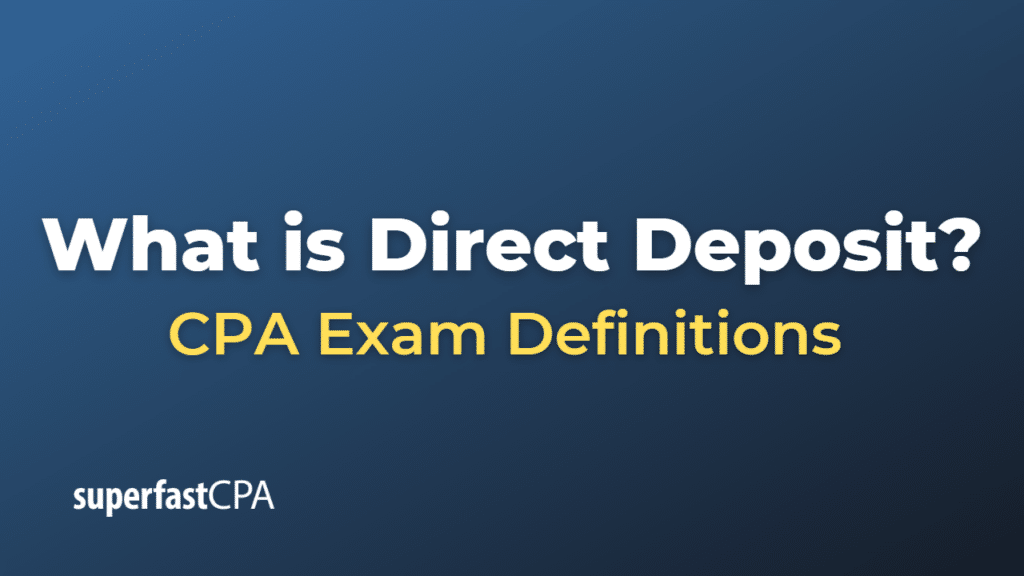Direct Deposit
Direct deposit is a type of electronic funds transfer (EFT) where money is moved from one bank account to another without the use of physical checks or cash. It allows a payer to deposit money directly into a payee’s bank account. It’s fast, secure, and convenient, which makes it a popular method for distributing paychecks, government benefits, tax refunds, and more.
For instance, employers often use direct deposit to distribute salaries to their employees. Rather than issuing paper checks, the employer transfers the salary directly into each employee’s bank account on payday. The employee then has immediate access to their funds without needing to cash or deposit a check.
To set up direct deposit, the payee typically needs to provide the payer with their bank account number and the bank’s routing number. They may also need to provide a voided check or complete a form provided by their bank.
Example of Direct Deposit
Let’s take the example of an employer using direct deposit to pay salaries to their employees:
Let’s say XYZ Corporation has an employee named Jane. Jane earns $3000 per month. XYZ Corporation uses a direct deposit system for salary distribution.
On payday, XYZ Corporation will initiate a transaction to electronically transfer $3000 from the company’s bank account to Jane’s personal bank account. The company’s payroll system will have Jane’s bank information on file (after Jane has provided it securely and given consent to use it for this purpose).
Once the transfer is complete, Jane will see a deposit of $3000 in her bank account. She won’t have to receive a physical check, go to the bank, or wait for the check to clear before she can access her money. The deposit will be immediate, and she will be able to use her salary as soon as it has been transferred.
This is the process of direct deposit. It’s efficient, quick, and eliminates the potential issues of lost or delayed paper checks. Besides payroll, direct deposit can also be used for other types of payments, such as social security benefits, tax refunds, and more.













